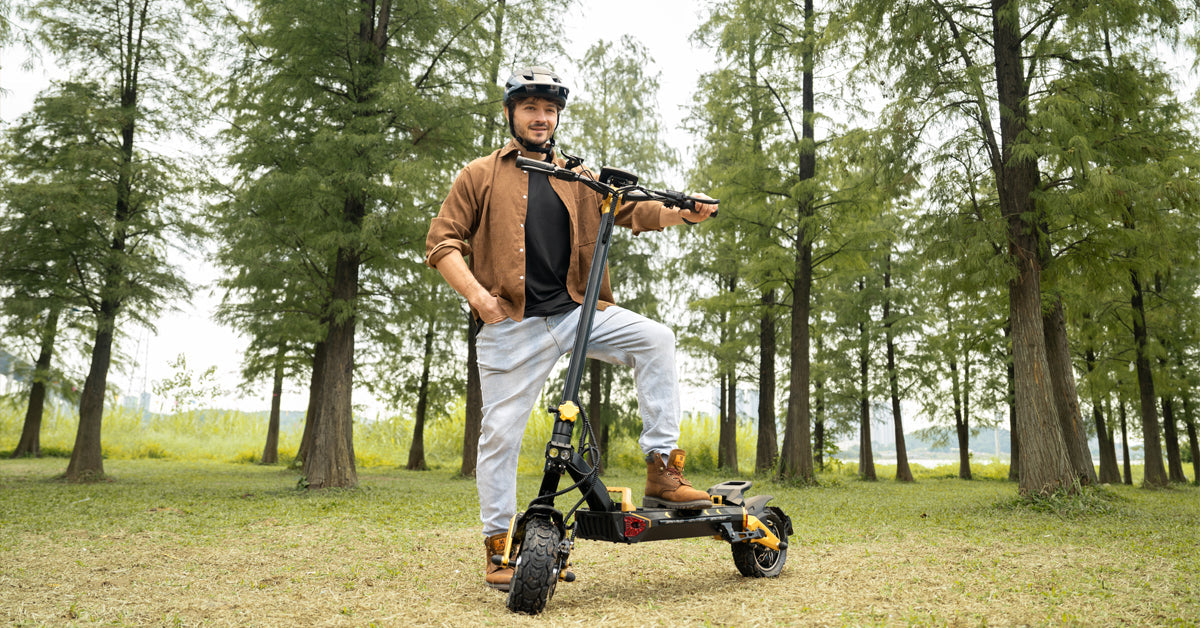Electric scooters are rapidly gaining popularity in the UK as a sustainable and convenient mode of transportation. However, questions about their legality often create confusion among potential users. This article explores the legal framework surrounding e-scooters in the UK, shedding light on where and how they can be used.
Current Legal Status of Electric Scooters in the UK
In the UK, the legal status of e-scooters depends on several factors, including where they are used and whether they are privately owned or part of a rental scheme. Below is a breakdown of the current regulations:
-
Rental E-Scooters
Rental e-scooters are part of government-approved trials in various cities, including London, Manchester, and Birmingham. These trials aim to evaluate the safety, benefits, and challenges of e-scooters as a transport option. Users of rental e-scooters must:- Be at least 16 years old.
- Hold a valid provisional or full UK driving licence.
- Ride only in designated areas, such as cycle lanes and roads.
Rental e-scooters are regulated similarly to motor vehicles, requiring compliance with safety standards.
-
Privately Owned E-Scooters
Privately owned e-scooters are illegal to use on public roads, pavements, or cycle lanes. They are classified as motor vehicles under UK law, requiring them to:- Be insured.
- Be registered with the DVLA.
- Meet construction and safety standards, including lights, brakes, and visible identification numbers.
However, no e-scooter currently meets these requirements, rendering private e-scooters unlawful for public use. They can only be ridden on private land with the landowner's permission.
Key Reasons for Current Regulations
The UK's cautious approach to e-scooters stems from concerns over safety and infrastructure compatibility. The primary issues include:
- Pedestrian Safety: Improper use of e-scooters on pavements could endanger pedestrians.
- Accident Risks: Limited experience among riders and inconsistent road-sharing practices may lead to accidents.
- Infrastructure Challenges: Many UK cities lack dedicated lanes for e-scooters, causing potential conflicts with other vehicles and cyclists.
Recent Developments and Future Outlook
The UK government is actively reviewing e-scooter policies to align with advancements in micromobility solutions. Some recent updates include:
- Extended Trials: Rental schemes are ongoing, with evaluations influencing long-term policy decisions.
- Legislation Proposals: In 2022, the government proposed a new category for e-scooters, aiming to streamline their legalisation while addressing safety concerns. If passed, these laws could legalise the use of privately owned e-scooters on public roads.
Experts predict that with proper regulations and infrastructure upgrades, e-scooters could become a legally recognised and widely accepted mode of transportation in the UK.
FAQs About Electric Scooters in the UK
1. Can I ride a privately owned e-scooter on public roads?
No, privately owned e-scooters are illegal to use on public roads, pavements, or cycle lanes.
2. Do I need a driving licence to ride a rental e-scooter?
Yes, a provisional or full UK driving licence is required.
3. Are helmets mandatory for e-scooter riders?
While not legally required, wearing a helmet is strongly recommended for safety.
4. Where can I ride a rental e-scooter?
Rental e-scooters can be ridden on roads and cycle lanes within designated trial areas.
5. What is the penalty for riding a private e-scooter illegally?
Penalties may include fines, points on your licence, or the seizure of the e-scooter.
Conclusion
Electric scooters have the potential to revolutionise urban mobility in the UK by providing an eco-friendly and efficient transport alternative. While the legal framework currently limits their widespread use, ongoing trials and legislative proposals signal a promising future for e-scooters. For now, users must adhere to the rules to ensure safety and compliance.





